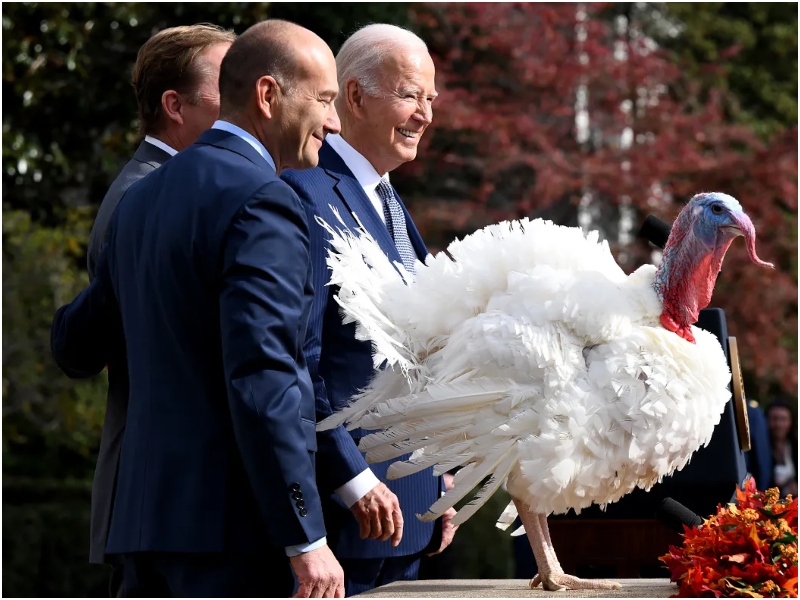Did you know that the tradition of presidential turkey pardoning, a beloved Thanksgiving tradition in the United States, has a fascinating and somewhat murky history?
While President Lincoln is often credited with the first turkey “pardoning” in 1863, it wasn’t until much later, during President Reagan’s term, that the modern practice of sparing turkeys from the dinner table became a formalized tradition.
Initially, turkeys were presented to the President by various farmers and supporters, with the birds often ending up as part of the Thanksgiving feast rather than receiving a pardon.
It wasn’t until President Kennedy, in a spontaneous gesture in 1963, spared a turkey from the dinner table, though he didn’t explicitly use the term “pardon.”
Subsequent presidents continued the tradition inconsistently until President Reagan, who began the practice of sending pardoned turkeys to live out their days on a farm.
Interestingly, while the term “pardon” has been used since Reagan’s time to refer to the turkey sparing ceremony, some legal scholars argue that these pardons may not be legally enforceable.
Nevertheless, the tradition has persisted, bringing joy to many and providing pardoned turkeys with a chance to live out their days in peace, often in high-profile locations or as part of educational programs.
So, the next time you see a pardoned turkey at a Thanksgiving parade or university campus, remember the fascinating legal history behind this heartwarming tradition.

